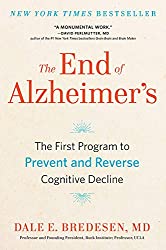
Rating: 8.2/10.
This book explores various illnesses from the perspective of evolutionary biology, to give Darwinian reasons for why we get sick in various ways and their symptoms. It’s important to distinguish between proximate causes (which describes the physiology of the disease) versus evolutionary causes (why it’s evolutionarily beneficial for the body to act this way). Doctors generally focus on the former, and the authors argue that it’s important to consider the latter too.
Some of the reasons we get sick:
- Many symptoms are the body’s reaction to problems that ultimately help us, for example, a fever is meant to kill invading microorganisms, and pain is meant to prevent us from getting hurt, thus suppressing it is bad. Some symptoms are not like this though, and are produced by the pathogen to spread itself and aren’t good for the host.
- Some problems are the result of evolutionary tradeoffs, which is constrained with limited resources for a body to fulfill lots of tasks. For example, the larger brain size in humans compared to other apes made it necessary to give birth at an earlier stage in development. Body parts are not meant to last forever, but rather stop working at roughly the same time, which is senescence.
- A lot of problems like myopia and dietary problems are due to a novel environment that we’re poorly adapted to. Anatomically modern humans existed around 100k years ago, physically identical to people today; during at that time, we were still living on the African savannah. Thus, we are most suitable for life in the stone age, and we haven’t had time to evolve adaptations to the modern diet and lifestyle.
Very insightful read that makes you think about the nature of diseases, and an early proponent of the field of evolutionary medicine. One problem with the book is it was written in 1994 and hasn’t been updated, so it poses a lot of open questions and research ideas, but doesn’t talk about progress in the last 25 years. Since the field was relatively new back then, I imagine that probably a lot of progress has been made since then.



